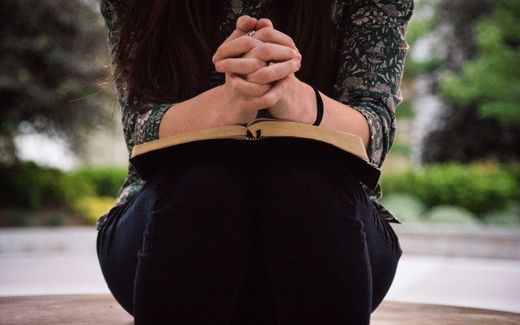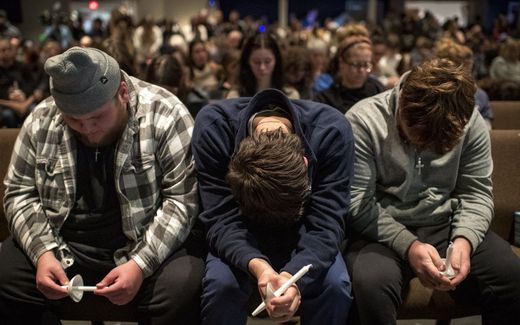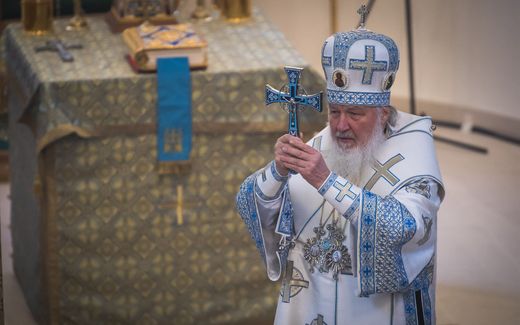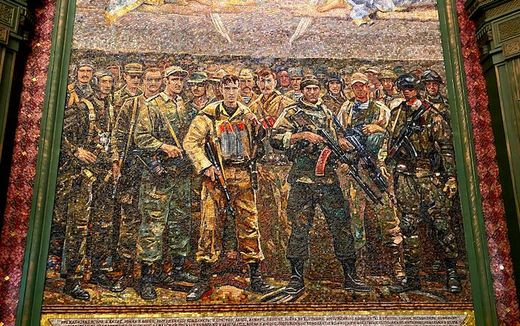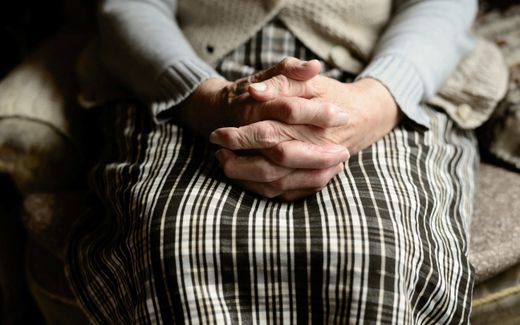Weekly column from Bulgaria: Praying in the midst of many divisions
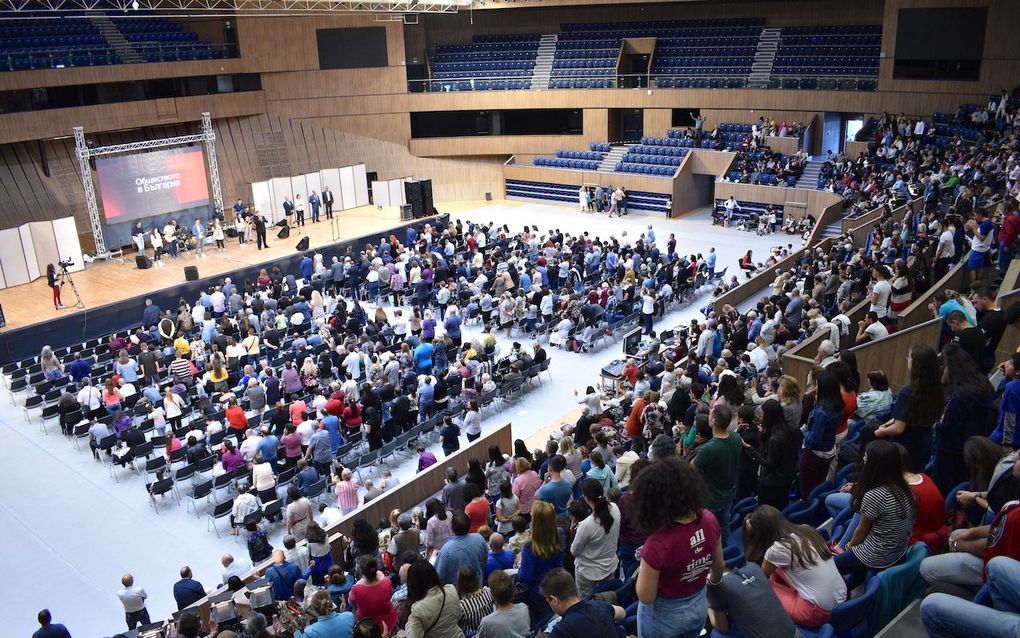
The Bulgarian Evangelical Alliance organises a yearly prayer event, as this one in 2019. Photo Vlady Raichinov
Christian Life
A torrent of comments fills the space under a Facebook posting. Some express strong agreement; others take an opposing position. Derogatory words are exchanged – harsh, ill-mannered. How to pray with people with such different views?
The arguments are too heated. Normally this would be fine, except that the “opinions” focus on the opponents, not on the topic. The exchange feels like a contest of shaming the other side. Strangely, both sides hurl Bible quotes at each other. And both claim to be Christians.
Like many other places around the world, Evangelicals in the South-East European country of Bulgaria find a number of topics to disagree on. A by-product of free and easy access to social media, many average churchgoers have become opinionated on a wide spectrum of issues: spiritual values, social justice, political matters, technological advances, lifestyle stories, and cultural developments.
Vlady Raichinov (1974) is a freelance translator, journalist and Bible teacher from Bulgaria.

He is involved at the editorial committee of “Zornitsa” newspaper (in print since 1871) and heads a small publishing house called “Beginning of Wisdom”.
He is part of the pastor’s team at First Baptist Church, Sofia. Currently, he serves as vice president of the Bulgarian Evangelical Alliance and general secretary of the Bulgarian Baptist Union.
Vlady and his wife Katya parent an amazing daughter named Maria.
The problem is that almost every topic seems to trigger opposing sentiments. Christians, who are normally expected to share a common worldview, allow themselves to be engulfed by radically opposing forms of “opinion”. Take a random issue (vaccines, 5G technology, the EU, Covid, even the current war in Ukraine), and you will find pastors, as well as church attendants, defend strong sentiments on diametrically contrasting points of view.
Division
In a divided society, this is a painfully familiar phenomenon. People read fewer books and more news; less paper and more screens; less literature and more whimsy theorising. Our opinion is formed within the boundaries of our social bubble. Whatever we read on our phone screen is reinforced by more of the same. And Evangelical Christians promptly follow suit.
Never before, have we witnessed such a deep and public estrangement between people from the same denominations, even from the same congregations. Modern Evangelicals do not argue anymore on doctrinal issues or theological interpretations. In the past, Christians may have disagreed on matters like worship styles, squabbles on a particular teaching, or disappointment over a morality failure. Recently, however, many would leave their church and join another one in town, driven by a new set of motives: disagreement over wearing a mask, controversies regarding the treatment of refugees, or whether the war in Ukraine should be called “an invasion” or “an operation”.
To make things worse, disagreements are now posted in the most public form: on Facebook walls, through Twitter statements, and on YouTube videos. Today, anyone can become an online preacher. All you need is a Bible and a phone with a streaming platform – and you can start broadcasting your prophetic sermons, and spiritual revelations to whosoever might be following your channel.
Prayer
On this background, Evangelicals in Bulgaria have found a ground that may just prove to be a solution to all this cacophony and disunity. For the past several years, representatives of almost all Protestant denominations in the country have come together in a bridge-building initiative called “a movement for prayer and brotherly love”.
It all started with the vision of a group of 80 pastors who came together in March 2017, in order to seek God’s guidance towards unity and love, based on prayer. “As members of the same Body of Christ, we are committed to working together seeking to fulfil God’s will as it is expressed in God’s Word”, said the first document they signed together. “We devote ourselves to appreciating and honouring one another as spiritual brothers and sisters, and co-workers of Christ, so that each one would treat everyone else with dignity and humility, ready to perceive them as higher and serve them with love.”
The group had representatives of all kinds of denominations and backgrounds: Church of God, Baptist, Pentecostal, Methodist, Congregational, Charismatic and many other independent and free churches. The pastors signed a “memorandum of cooperation and ethical guidelines” that outlines in general wording some ground principles. It pinpoints some specific prayer needs that will be the focus of every regional or national prayer meeting, rules for financial transparency and local coordination, and six general ethical protocols that are to be observed on every occasion.
The main focus of the agreement was to organise a day of intercession when Evangelicals from all over the country would come together and pray: for more people to be saved; for healthy relationships in the Body of Christ; for the spiritual transformation of Bulgarian society. As a result, the first National Prayer Day within this initiative was scheduled for September 22, 2018. In the meantime, the whole country of Bulgaria was split up into six regions, and the pastors agreed to hold a regional prayer event with the same values once a year in each region.
Simultaneously, pastors from various denominations have felt the need to meet locally on a regular basis in order to invest in shared prayer and intercession. In the seashore town of Varna, for instance, local Evangelical pastors have met every Tuesday morning for the past 18 years. This has created beautiful friendships between them, despite all denominational differences. Similarly, Evangelical churches in the capital Sofia have the habit of starting every next year with a January Prayer Week when seven different churches host evening prayers. The initiative first started in 2005, and its latest edition was in the week of January 9-15, 2023 (coinciding with the EEA Prayer Week). In various formats, cross-denominational prayer meetings are held regularly in other Bulgarian towns, as well.
Community
All of this may sound simple enough. But bringing together church leaders from so many different theological and practical backgrounds is never so easy. The Protestant community in Bulgaria was formed in the second half of the 19th century, as Methodist, Congregational and Baptist missionaries and literature distributers travelled the Balkan Peninsula spreading the Gospel of Jesus Christ. After the turn of the century, the three movements already had a rather dispersed representation throughout the country, and in 1909 they formed the Bulgarian Evangelical Alliance. (Traditionally, the terms “Protestant” and “Evangelical” have been used as overlapping synonyms.)
Today, 114 years later, the BEA comprises 14 Evangelical denominations and the same number of non-denominational missions and ministries. It is recognised by the government and by other religious organisations as a united voice representing Bulgaria’s protestant community. The Alliance (whose name translates as “United Evangelical Churches”) is a member of the European Evangelical Alliance and the World Evangelical Alliance, and locally in Bulgaria’s National Council of Religious Communities.
Currently, the Protestant community in Bulgaria amounts to a little over 1 per cent of the country’s population. According to a national census held in the autumn of 2022, about 71.5 per cent of Bulgarians identify themselves as “Christian”, the vast majority of them being Eastern Orthodox (4 million people). Other Christian groups include Evangelical/Protestant: currently 70,000 professing believers (1.1 per cent); Roman Catholics: about 39,000 (0.9 per cent); Armenian Apostolic: 5,000 (0.1 per cent); and “other Christian”: a total of 14,000 (0.3 per cent).
Protestants in Bulgaria are among the few religious communities that have grown in number since the last national census back in 2011 (from about 64,000 ten years earlier, to 70,000 today). Of course, this number is not exact, and there are many other factors to consider (strong waves of migration since Bulgaria joined the EU, for one), but it still shows a positive tendency.
Unity
Despite their many disagreements, Bulgarian Protestants have found prayer and brotherly love as a common ground. The initiative for united prayer events and a movement towards unity (recognised locally with the abbreviation MolitvaBG, from the words “prayer” and “Bulgarian”) has managed to draw together representatives from across the spectrum for five years in a row.
The pastors’ fellowship organising the initiative has now grown substantially. Besides the prayer days, they meet twice a year: for decision-making and for family retreats. They have chosen to set their faith firmly on Christ’s prayer in John 17:20-21, “I pray not only for these but also for those who believe in Me through their message. May they all be one, as You, Father, are in Me, and I am in You. May they also be one in Us, so the world may believe You sent Me.”
It is obvious in this priestly intercession by our Lord that in order for God’s Kingdom to grow, all Christ’s followers share the same duty: to work together in mutual understanding, to grow in respect and trust with one another, to teach unity and express brotherly love.
Rallies
During the first six regional prayer days, about 140 pastors took turns praying from the various stages while a total of 5,200 believers joined the rallies. Consecutive national prayer events followed this in the towns of Plovdiv (2018) and Varna (2019), which attracted thousands of believers and church leaders.
Typically, those prayer meetings would last several hours while various Christians of different ages and gender, professional backgrounds, denominational traditions or church hierarchies would take turns on the stage to lead prayers on a number of topics.
During the Covid restrictions, all regional and national prayer events were held online, via a live stream. In 2022, however, the organisational committee decided to return to in-person events. And today, more than ever, Evangelical Christians feel the urge to gather together in those times of worship, repentance, brotherly affection, mutual encouragement, and above all, intercession before the throne of God.
Something historical
Prior to the fifth national prayer day held on October 1, 2022, the initiative’s coordinator Dimitar Spilkov said in an interview, “Something historical is happening right now in Bulgaria, through our movement for unity and prayer. Brothers and sisters –Methodists and Pentecostals, Baptists, Congregationalists and Charismatics– have been gathering regularly and with a spiritual strategy. Through this series of shared times of prayer, they are building a new lifestyle for the nation and are investing in brotherly love and unity in the Holy Spirit, as a Biblical standard.”
After five national and thirty regional prayer gatherings, Bulgarian Evangelicals are now facing 2023 with a renewed sense of optimism. Despite the various levels of splits and disagreements on interpreting their surroundings and relating to the current political and economic events of their lifetime, they have now discovered a platform of unity that transcends anything else – and has the potential to bring them together as they seek to hear God’s voice and build His kingdom.
The next national prayer day is set for October 14, 2023, in Sofia.

Related Articles


